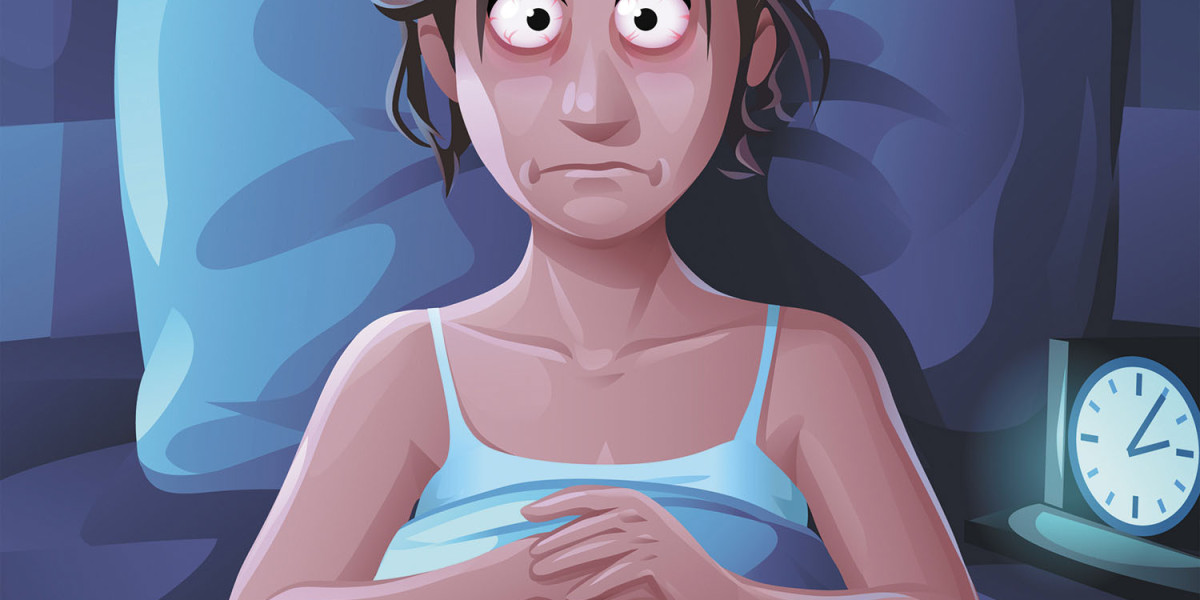In today’s fast-paced world, sleep has become a luxury for many. The recommended seven to nine hours of rest seems like an impossible goal for millions of Americans, many of whom grapple with chronic insomnia. Insomnia, the inability to fall asleep or stay asleep, has become a widespread issue affecting the physical, emotional, and mental well-being of individuals. While it may seem like an isolated condition, insomnia is deeply intertwined with mental health, creating a hidden crisis that deserves urgent attention.
The Scope of the Problem
According to the American Academy of Sleep Medicine, an estimated 30% to 35% of adults in the United States experience brief symptoms of insomnia, while 10% suffer from chronic insomnia that occurs at least three times a week and lasts for more than three months. These numbers translate into millions of individuals struggling to function during the day due to insufficient sleep at night.
The relationship between insomnia and mental health is cyclical. Sleep problems can exacerbate existing mental health conditions like anxiety, depression, and post-traumatic stress disorder (PTSD), and these conditions can, in turn, worsen insomnia. This cycle creates a self-perpetuating loop of mental and physical exhaustion, significantly impacting a person's overall quality of life.
Understanding Insomnia: The Mind and Body Connection
At first glance, insomnia might seem like a simple inability to fall asleep, but it is often much more complex. Insomnia can be triggered by several factors, both physiological and psychological. Stress, anxiety, and emotional trauma are some of the most common psychological causes of insomnia. When the mind is constantly overactive, worrying about the future or ruminating on past events, it becomes difficult to enter the relaxed state necessary for sleep. This heightened state of arousal can make sleep elusive, perpetuating the stress that caused the problem in the first place.
Moreover, insomnia affects brain function in ways that worsen mental health. Sleep is essential for brain restoration and processing emotions. During deep sleep, the brain filters out unnecessary information and solidifies memories. Lack of sleep disrupts this process, making it harder to regulate emotions and think clearly during the day. This can lead to increased irritability, difficulty concentrating, and heightened anxiety. The more a person experiences these symptoms, the more their mental health deteriorates, and the harder it becomes to sleep—thus continuing the cycle.
Insomnia and Anxiety: A Symbiotic Relationship
Anxiety is one of the most common mental health disorders associated with insomnia. The relationship between the two is bidirectional; anxiety can cause insomnia, and insomnia can heighten anxiety levels. Many people with anxiety disorders struggle with racing thoughts and worries, which make it difficult for them to relax enough to fall asleep. Even when they do fall asleep, they may wake up frequently throughout the night, further compounding their exhaustion.
Studies have shown that people with chronic insomnia are more likely to develop anxiety disorders, and untreated anxiety can lead to worsening sleep problems. This creates a vicious cycle where poor sleep leads to anxiety, and anxiety, in turn, exacerbates insomnia. Over time, this pattern can severely impact a person's ability to function, leading to increased stress, lowered productivity, and deteriorating mental health.
Depression and Insomnia: A Devastating Duo
While anxiety and insomnia often go hand in hand, depression is another major mental health condition closely tied to sleep disorders. Many individuals with depression report difficulty sleeping, whether it's trouble falling asleep, staying asleep, or waking up too early in the morning. This symptom is often referred to as “early-morning awakening” and is a hallmark of depression-related insomnia.
Lack of sleep can also intensify depressive symptoms. Sleep deprivation disrupts the balance of neurotransmitters in the brain, particularly serotonin and dopamine, which play a crucial role in mood regulation. As a result, people who don’t get

